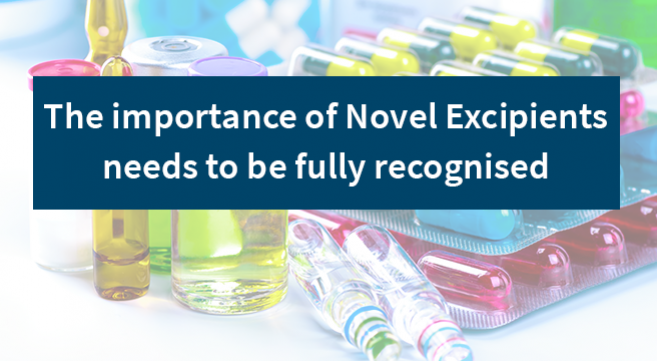
CPhI article on the importance of Excipients
Category: IPEC EuropeIPEC Europe and EFCG continue to make the case that the importance of novel excipients needs to be fully recognised and are pleased to see that others are beginning to take notice too.
As we know, excipients are substances that can help APIs (active pharmaceutical ingredients) in a medicine to fulfil their therapeutic objectives. They are therefore essential in the formulation of pharmaceutical products.
This interesting CPhI article shows how the COVID-19 pandemic has led to a significant increase in the manufacturing of pharmaceutical products and vaccines, thus increasing the use and importance of excipients.
It is crucial for patient health that all components of a drug, including excipients, are assessed for safety, quality and performance and that the security of their supply is guaranteed.
Particularly, novel excipients can provide key solutions to support innovation and development. Cyrielle Jeannot, Area Market Manager Europe at Roquette highlighted novel excipients in the CPhI article.
Novel excipients can be new substances formulated in human drug products for the first time as well as materials used in a formulation given by a new route of administration. Jeannot asserts that “the challenges of developing a novel excipient are almost the same as developing a new drug substance”.
EFCG and IPEC Europe issued in March a joint position paper supporting the creation of a regulatory pathway for the independent approval of novel excipients in Europe, to foster innovation in the development of medicines.
The lack of a workable system for novel excipients in the EU has a negative impact on the development of innovative medicines in Europe compared with other countries such as China and the USA, to the detriment of EU patients. Creating the independent regulatory pathway would protect the confidential manufacturing know-how of novel excipients and encourage collaboration between their discoverers and SMEs to develop innovative medicines.
IPEC Europe and EFCG propose a set of measures to adapt the EU regulatory framework for the development of high-quality, effective, and safe medicines to enable this:
- A modular approach such as the Master File System for APIs (ASMF) should be extended to novel excipients providing independent review. Data needs for novel excipients are equivalent to those for APIs and regulatory equality is essential.
- Cross-referencing a novel excipient Master File in a Marketing Authorisation Application (MAA) would ensure full review by EMA, helping to shorten approval times and simplify authorisation procedures.
- Novel excipient manufacturers could work in parallel with developers of medicines again reducing approval times, especially in crisis situations.
- The confidential manufacturing know-how of the novel excipient will be protected.
Please contact Maggie Saykali (MSA@cefic.be), EFCG or Carole Capitaine (carole.capitaine@ipec-europe.org), IPEC Europe for further information.